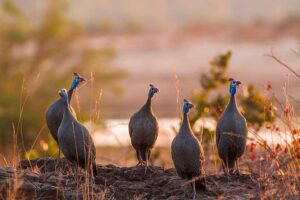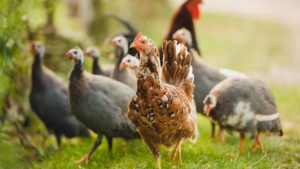You can obtain hatching eggs from:
Your own flock or a friend or neighbor’s flock of males and females – Without males the eggs will not be fertile. Having males is not an assurance, but an all female flock will not produce any fertile eggs. (They will still lay eggs, however.)
Local feed stores and newspapers – Many have a place for customers to post “for sale” and “looking for” ads.
Online auctions and breeders – Eggs can be found easily at these places, but you have no way of knowing the condition the eggs will arrive in or what type of care the breeders give their flock. Ask the seller questions and make any requests they are willing to fill. There is nothing wrong with asking them not to send you dirty eggs. A good breeder will not try to sell you eggs that are too dirty, too large, or too small. Some will send extra eggs just in case one or two get damaged during shipping.
Hatcheries – A majority of the time, hatcheries can be counted on to send you good eggs that are not too dirty, too small, or too large.
Most, but not all, places you can get guinea eggs, the eggs will come from a mixed flock. Hatcheries keep the colors separate, so you can usually pick and choose the colors of your birds. Legitimate hatcheries are required by law to meet particular guidelines of fowl care. This is a safe place to purchase eggs and keets from. It is a good idea to either get feedback from other buyers or see a breeder’s setup firsthand if they are not a hatchery. A healthy and properly cared for flock will produce better keets and eggs. Also, keep in mind that legally most states require hatching eggs shipped over state lines to come from an NPIP flock. Being NPIP approved does not mean the breeder gives their birds the proper care. It simply means they are not carrying certain diseases. Many home breeders DO take good care of their flock, but not all.
What should you look for before choosing which ones to put in the incubator?
Wash your hands, fully dry them, and then inspect each egg carefully. Look for cracks and seeping areas. Are they very dirty? Eggs commonly have some dirt on them, but very dirty eggs should not be incubated. Are any of the eggs greatly misshapen? Do any look much larger or much smaller than the others? Eggs that are too small will hatch small keets or will not be big enough for the keet to develop properly. Eggs that are much larger could possibly have a double yolk, and double-yolked eggs almost never hatch. You can check for a double yolk by candling before placing the egg into the incubator. Two dark circles indicate a double yolk.
Related Links
- Guinea Fowl International Association Guinea Fowl Breeders List (Worldwide)
- GFIA Classified Ads – Guinea Fowl – keets, adults, & hatching eggs
- Right Pet: Helmeted Guinea Fowl Breeders (USA)
- Allotment-Garden.org: UK Suppliers of Guinea Fowl by County (UK)
- Preloved: Search Results for Guinea Fowl for Sale (UK)
- IrishFowl.com: Poultry Breeders who sell Guinea Fowl (Ireland)
- Eggbid.com ~ Guinea Eggs: Guineas
- Petfinder.com ~ Adoptable Guinea Fowl
- New Zealand Rare Breeds – Rare Breeds Conservation Society of New Zealand: Directory of Rare Breeders – Guinea Fowl
- Backyard Poultry: Backyard Poultry Directory (Australia) – Guinea Fowl






